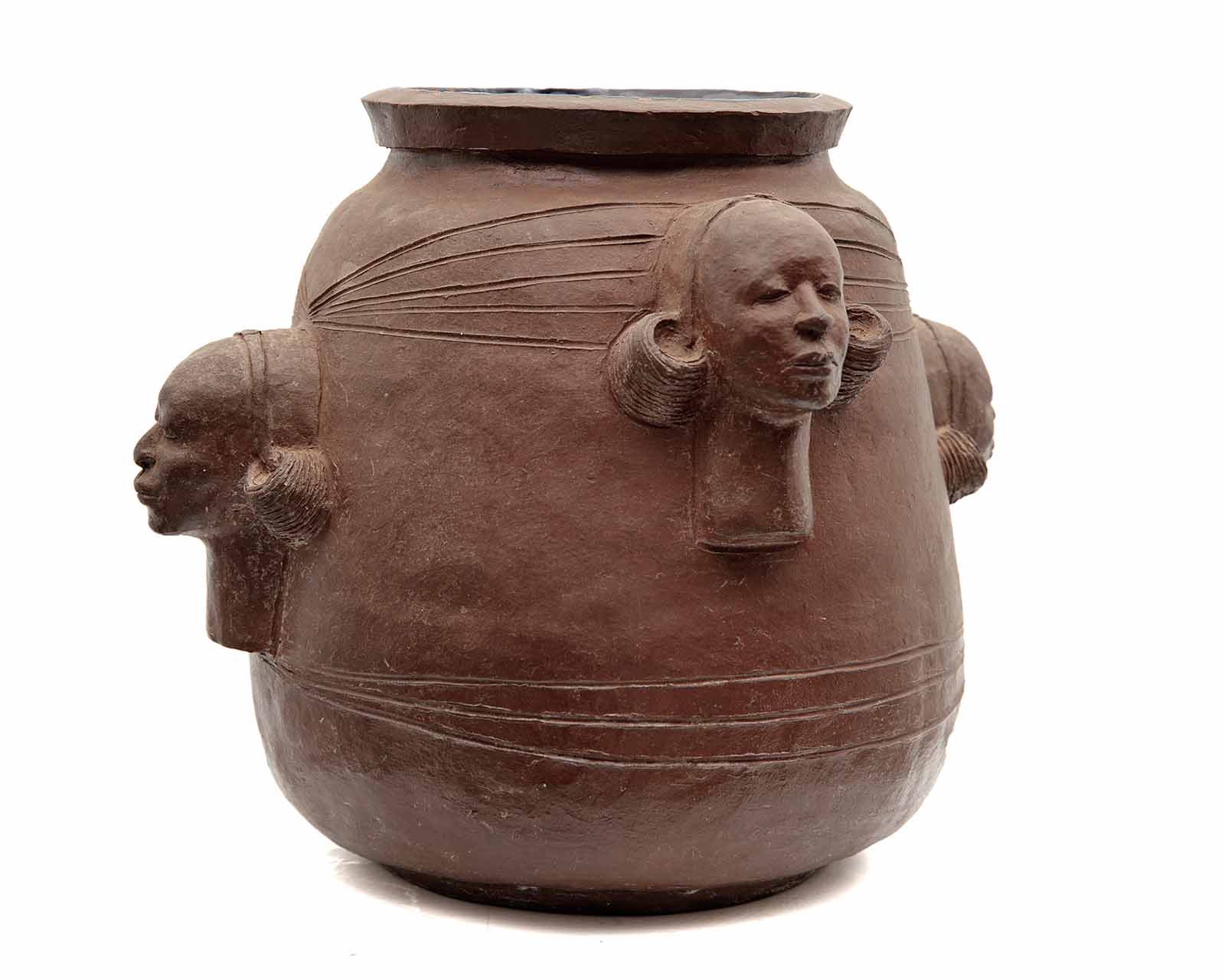Edward Njenga (Kenyan, 1922 – 2022)
Pot, 1972
Signed ‘ESN 72’ (signed on the bottom) Stoneware
30 x 29.1 x 24.3 cm
Ksh 250,000 – 400,000
(US$) 2,200 – 3,500
Provenance: from the artist’s estate
Sold Ksh 399,160
Edward Njenga is one of Kenya’s most revered sculptors with a career spanning almost six decades. Since 1962, Njenga has captured in clay scenes from everyday life in Kenya, as well as stories witnessed in his work as a social worker. His sculptures, which have documented the social circumstances of Nairobi’s inhabitants throughout the post-independence period, are a prized component of Kenyan cultural heritage.
The fourth of seven children, Njenga was the only one to assist his mother who was a potter (like her mother before). Whilst he didn’t pursue a career in pottery, the techniques the young Njenga learned from her formed the foundation for his future as a sculptor.
Njenga began his sculpting career in 1962, whilst working as a social worker in Nairobi. He had his first exhibition of nine pieces at the New Stanley Hotel gallery, followed by a show at Paa Ya Paa Gallery in 1968 at the invitation of fellow artist, Elimo Njau. In 1970, Njenga held an exhibition at Gallery Africa which was opened by Attorney General Charles Njonjo and was a great success, earning him a scholarship to study in Germany at Hanover University from 1971 – 73. On his return to Nairobi, his exhibition at the National Museums of Kenya was aired on German television. Exhibitions in the USA followed in the 1970s, in Washington and New York.
A major retrospective of Njenga’s sculptures, featuring over 200 pieces, was held at the National Museum in Nairobi in 2014, and Telling It in Clay, a biography by Lynnette Kariuki, was published in 2015. Njenga’s works feature in many important private and public collections worldwide.
This is the first and only pot that is in his estate’s collection and was made during a residency in Germany in 1972.


